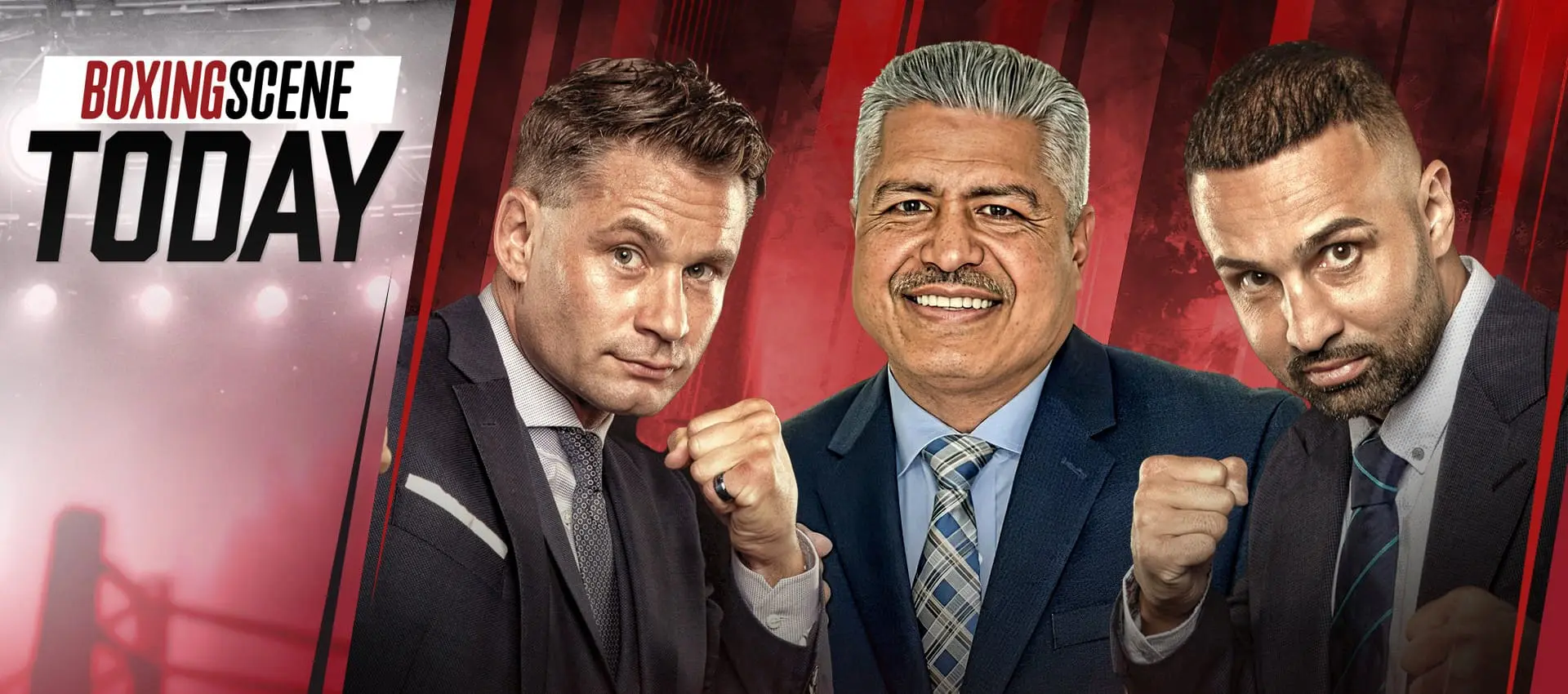
Saturday | Dec 27, 2025 | 12:00 PM EST
Naoya Inoue vs Alan David Picasso
Junto Nakatani vs Sebastian Hernandez Reyes
Willibaldo Garcia vs Kenshiro Teraji
DAZNRiyadh, Saudi Arabia
'BoxingScene Today'Talk Show
Pauli, Algieri, and Coach Garcia breakdown today's top stories

Upcoming episode - coming soon
Boxing Interviews
Interviews with boxing biggest stars

Conor Benn Opens Up On The Darkest Chapter of His Career
Dec 12, 2025 |

Diego Pacheco: 'It was time to make my own Team Pacheco'
Dec 12, 2025 |

DEONTAY WILDER: 'FIGHT TALKS WITH USYK ARE GOING WELL'
Dec 12, 2025 |

'AJ WAS GOING TO FIGHT CASSIUS CHANEY' Eddie Hearn talks Jake Paul-Anthony Joshua
Nov 29, 2025 |






